The Working Class and Political Disengagement
In today’s blog we are going to be exploring the lack of working class representation within politics. For years, the working class have been the lowest engaging class when voting but why is this? I am going to be examining some of the reasons why social class may be affecting the voting turnout and some solutions which may encourage the working class to vote more.
You may be asking yourself what is social class and why would it affect political engagement? Social class is defined as a division of society based on economic and social status (Oxford Dictionaries | English, 2018) which means that our income defines our social class. The higher your income the higher the social class. We are ruled by the right wing which in my opinion alienates and oppresses the working class who create the means of production. As capitalism owns the means of production this oppresses the working class. The socio-economic grades are described in fig 1 stating that A is the highest level which usually consists of professions such as Doctors, lawyers and CEO’s and the lowest grade of E which are typically underemployed.
One of the main reasons why the working class may choose not to vote is because they lack the skills and knowledge about the system. This may be due to working class people not receiving the same education as upper classes. Upper class citizens have the opportunity of private education which is not an option for the working class leading to public schools with poorer education. In fig 2 we can see how the different social classes voted in the EU Referendum, it shows that the upper classes majority (79%) voted remain and the lower classes majority (65%) voted leave. It is also interesting to see the percentage of each class that didn’t vote (12%) as this was largest amongst the lower class grades. This may be due to them not receiving the same level of education as upper classes which could obtain a more in depth knowledge into politics as social background affects access to student council and debating clubs within education. There is clear evidence to suggest that the level of education you have receive does affect the probability you have of politically engaging (Hoskins & Janmaat 2016).
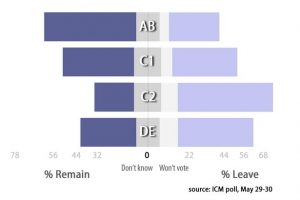
Fig 2: How the UK voted in the EU Referendum based on socio-economic grade. Data provided from walesonline.co.uk
Looking strictly at how people with different levels of education voted in the EU Referendum (Fig 3) we can see how 68% of people with a degree or higher mainly voted remain and 30% of people with no qualifications voted remain, showing that people the majority of people with poorer education voted leave and the majority of people with higher education voted remain which supports the idea of how the level of education affects how people vote in the elections. This could be due to lower educated people not having the proper skills and lack of understanding of the political parties and feeling as though the outcome of the general elections will not have that much of an impact on their lives. I feel as though when I was young my parents were always pushing me to make sure I vote but from the education I received I did not know much about the different political parents and how my one vote would make a difference leading me to vote for a cause without much knowledge about the issue. This could be the same with other lower class citizens as in my school citizenship was not a particularly popular subject and was combined with PSHE which made my knowledge of political parties very limited.
Our family also play a significant role when it comes to probability of voting. This is because parents who talk about politics influence their children to vote for their favoured party rather than teaching them about the different parties or only highlighting the negatives in opposing parties.
In conclusion, it is clear that the working class have disengaged themselves from politics. I think a main issue for this is education and how lower classes do not have the same opportunities to learn about politics as the upper classes do. A solution to change this clear inequality between the social classes would be to reinforce the need to learn citizenship and politics within education from an early age, teaching the importance of voting and other ways to politically engage today. A lot of our knowledge about the political parties comes from our parents and shows how easily influenced we are when sharing our views. I feel a more in depth subject regarding politics is essential in schools to tackle this problem so that all social classes can vote for what they really want.
Bibliography:
Hoskins, B. and Janmaat, J G. (2016) ‘Educational trajectories and inequalities of political engagement among adolescents in England’, Social Science Research, 56, pp. 73-89, doi: 10.1016/j.ssresearch.2015.11.005
Ipsos MORI. (2009). Social Grade: A Classification Tool. Available: https://www.ipsos-mori.com/DownloadPublication/1285_MediaCT_thoughtpiece_Social_Grade_July09_V3_WEB.pdf. [Accessed 5 Mar. 2018]
Ipsos MORI. (2018). How Britain voted in the 2016 EU referendum. [online] Available at: https://www.ipsos.com/ipsos-mori/en-uk/how-britain-voted-2016-eu-referendum [Accessed 6 Mar. 2018].
James, D. (2018). What the polls tell us about the EU referendum. [online] walesonline. Available at: https://www.walesonline.co.uk/news/politics/eu-referendum-polls-divided-age-11418114 [Accessed 5 Mar. 2018].
Oxford Dictionaries | English. (2018). social class | Definition of social class in English by Oxford Dictionaries. [online] Available at: https://en.oxforddictionaries.com/definition/social_class [Accessed 5 Mar. 2018].
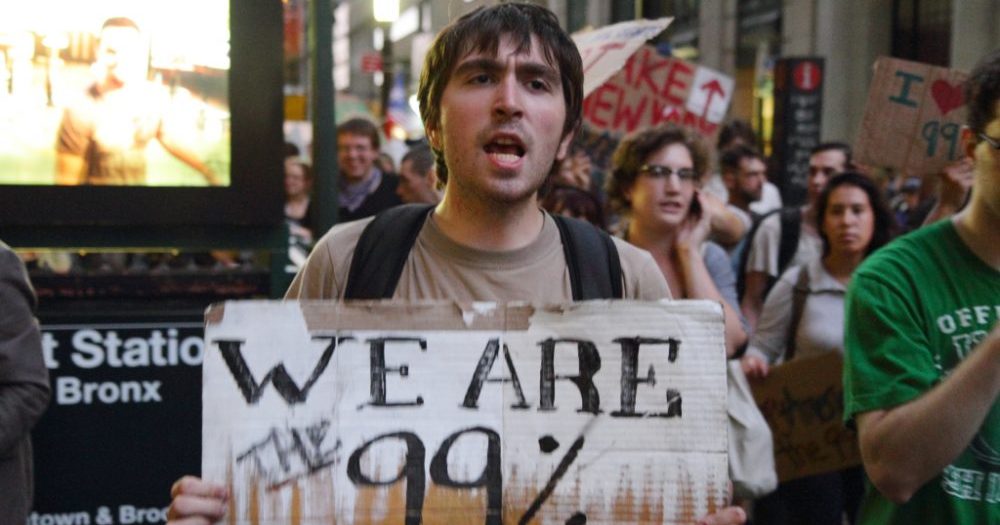
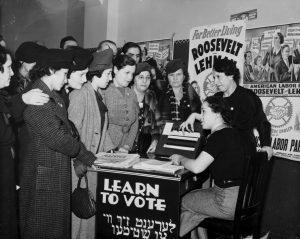
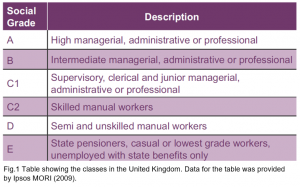
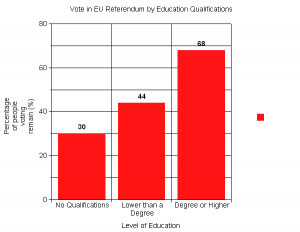
Be the first to comment